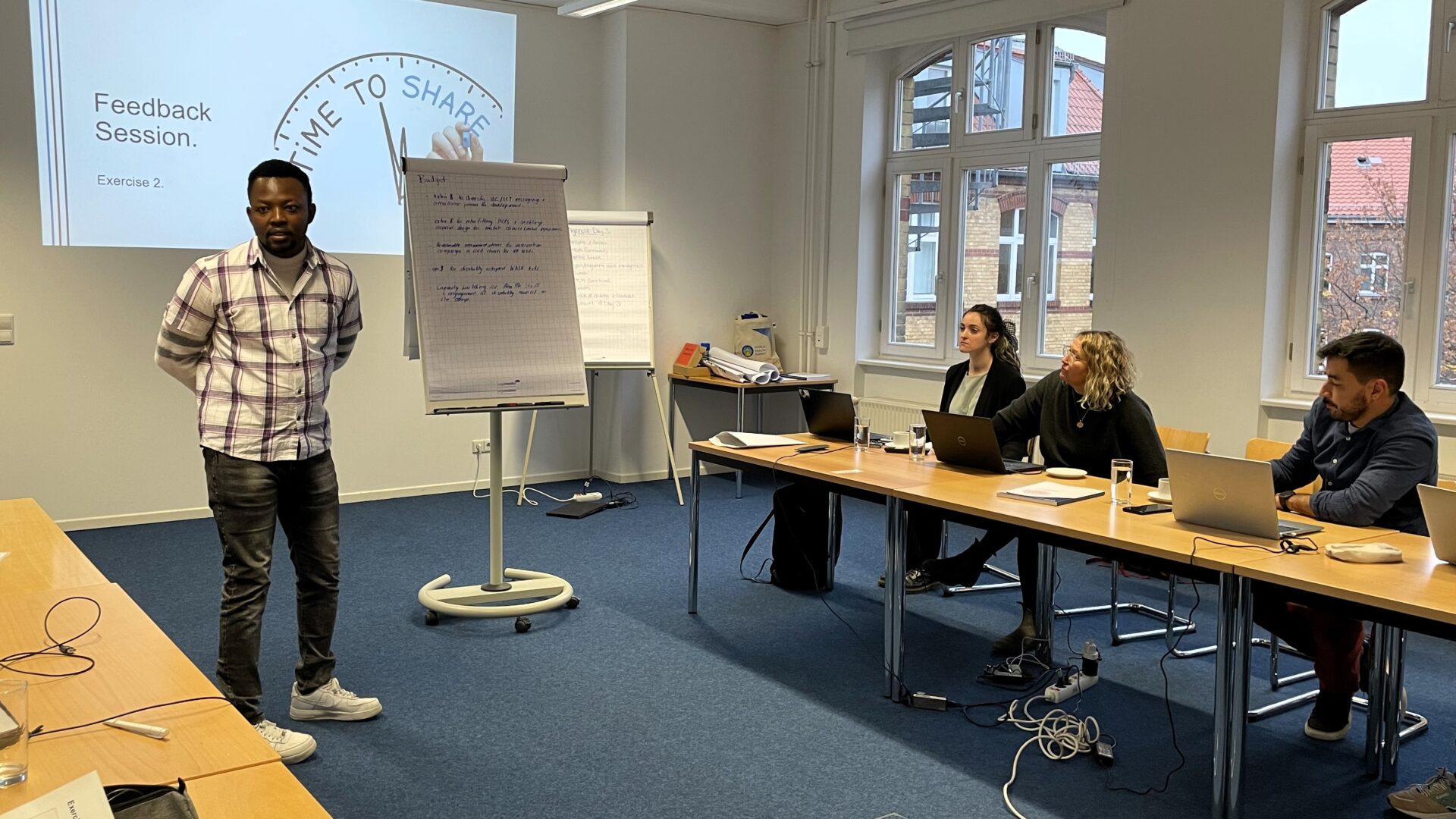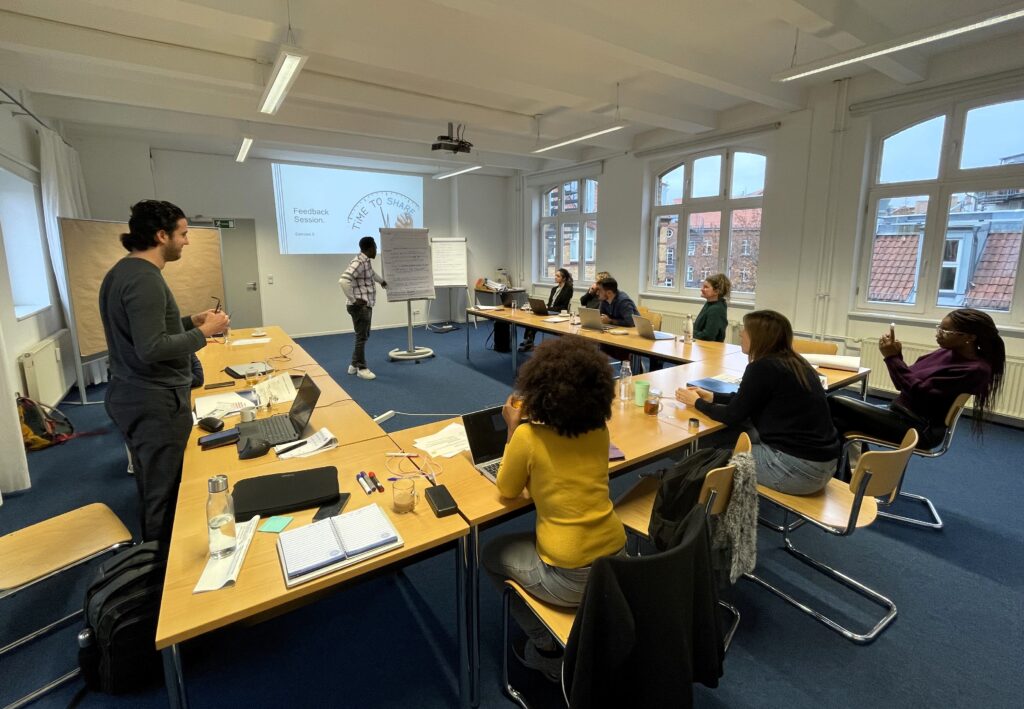Piloting Disability-Inclusive Health Training for Humanitarian Actors in Berlin
Category
Capacity Building IASC-Guidelines
© Heidi Villikka / HI
From November 5 to 7, 2024, HI’s project team organised a specialized training for humanitarian actors in Berlin on “Introduction to Disability-Inclusive Health: Amplifying Change Towards an Inclusive Humanitarian Health Response.” This training served as a pilot for our upcoming learning package on inclusive health, which is set to be released later this year.
Addressing Sector-Specific Skills
There is a growing demand for sector-specific skills and knowledge on the inclusion of persons with disabilities in humanitarian action. In response, our project is collaborating with various humanitarian actors to develop two specific learning packages—one focused on inclusive WASH (Water, Sanitation, and Hygiene) and another on inclusive health.
The pilot training in Berlin focused specifically on disability inclusion within health response. The new training package has been developed in collaboration with International Rescue Committee, Médecins Sans Frontières, Inclusion Africa, United Disabled Persons of Kenya, and the Differently Talented Society of Kenya, and adapted from the Disability Reference Group’s training modules “Introduction to Disability-Inclusive Humanitarian Action”. It outlines how to include persons with disabilities in humanitarian Health response, including of two additional modules on Informed Consent and Health Workforce.
Interactive Training
The training involved active participation and hands-on learning, incorporating a range of methodologies. The participants were able to deepen their understanding on:
- barriers faced by persons with different disabilities to health services,
- knowledge on accessibility, universal design, and reasonable accommodation,
- Must-Do Actions (MDAs) for promoting inclusion,
- The Twin Track Approach to inclusive health programming
- disability-inclusive health programming and coordination reflecting all phases of the humanitarian project and program cycle.
Participants engaged in group exercises to address practical challenges and became familiar with the IASC Guidelines on Inclusion of Persons with Disabilities in Humanitarian Action. This interactive format helped ensure that they were not only learning theory but also applying it to practical scenarios. Attendees were also able to exchange ideas on each other’s good practices and entry points for change.
The feedback collected from the participants will be used to refine and enhance the training package before its official release. By incorporating insights from those on the field, we aim to create a robust resource that supports the skills of humanitarian staff in different positions.
